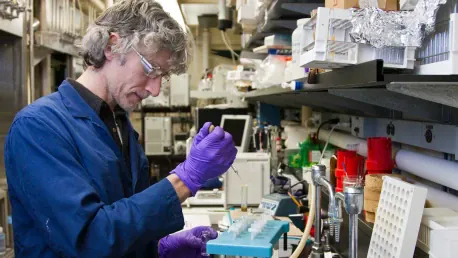The field of cancer research has witnessed significant strides over the years, yet the journey to finding highly effective treatments remains complex and challenging. A pivotal aspect driving this progress is the contribution of early-career researchers, whose innovative ideas and fresh perspectives are seen as integral to the future of oncology. The National Comprehensive Cancer Network® (NCCN®) and its NCCN Foundation® have been at the forefront of supporting these burgeoning talents through initiatives like the Young Investigator Awards (YIA). This program aims to accelerate groundbreaking research and foster advancements in cancer treatment and patient outcomes.
Innovative Projects and Researchers
The current cohort of YIA recipients underscores the depth and creativity within the early-career research community. Notable among them is Dr. Rachel Abelman from the Mass General Cancer Center, Harvard Medical School, who is spearheading a Phase II study combining sacituzumab govitecan and pembrolizumab to treat resistant triple-negative breast cancer. Her work aims to identify more effective treatment protocols for this particularly aggressive type of cancer, which has limited treatment options.
Similarly, Dr. Mathew Angelos from the University of Colorado Cancer Center is breaking new ground with his study on CAR T-cell therapy for refractory or relapsed acute myeloid leukemia. This innovative approach leverages the body’s immune system to target and destroy cancer cells, presenting a promising avenue for patients who have exhausted conventional treatment options.
Dr. Kathryn Tringale from UC San Diego Moores Cancer Center is making strides in neurotoxicity biomarkers in CAR T-cell therapy through advanced neuroimaging techniques. Her research aims to mitigate the neurological side effects associated with this treatment, thereby improving overall patient safety and treatment efficacy.
Lastly, Dr. Jennifer Zhang from Abramson Cancer Center, University of Pennsylvania, is investigating the use of intratumoral CD40 agonists combined with checkpoint inhibitors for resectable breast cancer. This combination aims to enhance the body’s immune response against tumors, offering a potential breakthrough in early-stage breast cancer treatment.
Ongoing Commitment and Funding
The dedication of these researchers is matched by the unwavering support from the NCCN Foundation, which has allocated over $11.7 million to emerging scientists since the inception of the YIA program. This financial backing not only aids in the execution of their pioneering projects but also underscores a broader commitment to addressing challenging aspects of oncology, such as molecular residual disease monitoring and effective symptom management in palliative care.
This year’s awards have benefited from the collaboration with notable industry players like AbbVie, Merck & Co., Inc., and Jazz Pharmaceuticals. These partnerships highlight a united mission to propel groundbreaking research that has the potential to redefine cancer treatment protocols and significantly improve patient outcomes. By funding novel and diverse approaches, these alliances aim to tackle the complexities of cancer from multiple angles, driving innovation and saving lives.
Future Perspectives on Cancer Treatment
Cancer research has made substantial progress over the years, but the journey toward highly effective treatments remains complex and challenging. A crucial factor driving this advancement is the contribution of early-career researchers. These individuals bring innovative ideas and fresh perspectives, which are considered essential for the future of oncology. The National Comprehensive Cancer Network® (NCCN®) and its NCCN Foundation® play a leading role in nurturing this young talent. Through initiatives like the Young Investigator Awards (YIA), these organizations aim to expedite groundbreaking research and foster advancements in cancer treatment. The YIA program not only supports early-career researchers financially but also provides a platform for them to explore novel approaches to improve patient outcomes. This initiative is a testament to the belief that investing in young researchers is vital for the continued evolution and success of cancer research, ensuring new breakthroughs and improved treatments in the fight against cancer.









